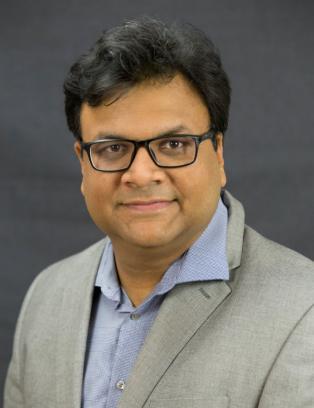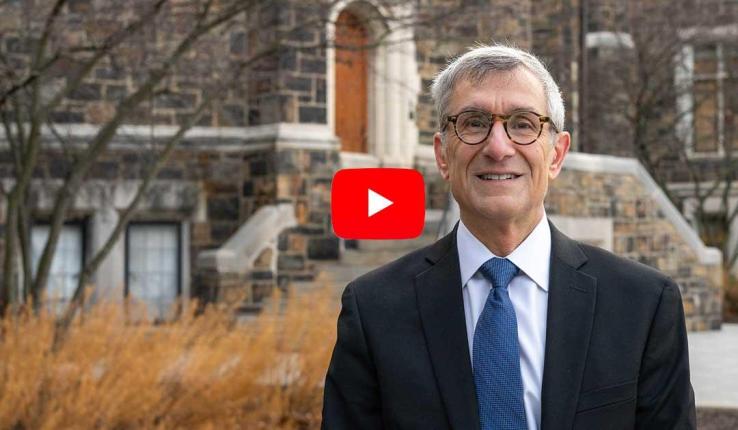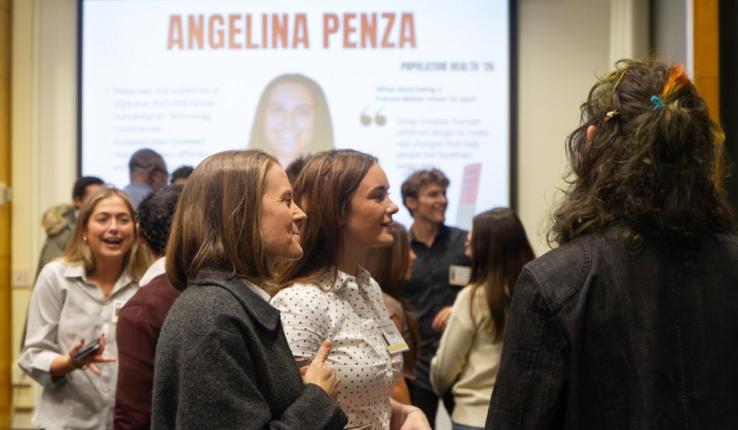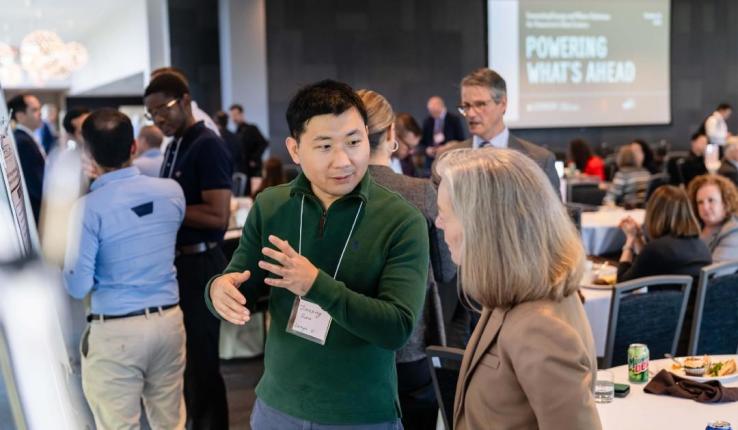Lehigh names vice provost for creative inquiry and director for the Mountaintop Initiative
Khanjan Mehta, the founding director of the Humanitarian Engineering and Social Entrepreneurship (HESE) Program, assistant professor of engineering design, and affiliate professor of international affairs at Penn State University, has been named the inaugural vice provost of creative inquiry and director for Lehigh’s Mountaintop initiative. He will officially assume the new role on Dec. 30, 2016.
As vice provost for creative inquiry, Mehta will head up the innovative program that debuted three years ago to create and nurture a vibrant, unique learning environment where students, faculty and external partners can answer open-ended questions while working across disciplines. The program is designed to challenge faculty and students alike to “increase their capacities for independent inquiry, for taking intellectual risks and learning from failures, for collaboration, for recognizing important problems and opportunities to effect constructive and sustainable change,” according to the Mountaintop Initiative website.
Mehta will leverage the program’s substantial momentum, infrastructure, resources and deep institutional commitment to grow and internationally champion the approach that places independent inquiry and discovery at the core of the Lehigh student experience, according to Provost and Vice President of Academic Affairs Pat Farrell.
“We’re delighted that Professor Mehta will bring his experience and passion to help shape the Mountaintop vision and enable the program to realize its full transformative potential,” said Farrell in announcing the appointment. “He clearly believes that far-reaching innovation happens when concepts and disciplines converge, and he’s demonstrated that commitment in his role at Penn State, where he collaborated with students and faculty from every college within Penn State. We’re excited about his potential to lead Mountaintop as it continues to evolve into a truly powerful experience for our students.”
Professor of Economics Todd Watkins, who chaired the search committee, said the group was “blown away” by the trail-blazing HESE program Mehta built from the ground up at Penn State.
The program, which Watkins said has evolved into a world-class leader, successfully drew together students and faculty from all corners of the university.
“He’s been an innovative, true champion of interdisciplinary creative inquiry, both across Penn State and nationally,” Watkins added. “As we did our due diligence, faculty colleagues’ and students’ enthusiasm, devotion and praise for Khanjan was palpable. He’s also got the most amazing energy and ability to lead change and work collaboratively to get things done that I’ve ever seen in academe. I’ve no idea how he accomplishes so much, or gets so much out of the students and faculty and external partners he works with. I’m delighted he’s joining the Lehigh family and I’m very much looking forward to put shoulder to boulder with him.”
Mehta said that he was extremely immersed in the HESE program and various food security and global health ventures, and wasn’t looking for a new opportunity. But, Lehigh’s “clarion call for creative inquiry that spans disciplines and cultures” captivated him.
“The emphasis on experiential pedagogies, intersectional innovation, and a student-centered research environment, even the sheer choice of words used to convey these constructs align perfectly with my way of thinking and doing,” said Mehta.
His enthusiasm grew throughout the exploratory process, as he came to know the members of the search committee and witnessed their contagious passion for their work.
“My campus visit was awesome,” he said. “I just sat back and started talking to everyone very honestly and openly as if I had known them for a long time… they are such beautiful people with great ideas and a twinkle in their eyes.”
Mehta said he was sold on the Mountaintop opportunity, describing it as “really an unprecedented platform to rethink and redesign how we learn, how we teach, how we create and disseminate new knowledge, and how we engage with the rapidly-changing world. I love the Lehigh narrative of a student-centered research university perpetually striving to translate research into practice, and I could see it in action everywhere I went and everyone I spoke to. It is emblematic of the three things I want Mountaintop to stand for: impact, impact and impact.”
A bold enterprise
In 2013, Lehigh alumnus Scott Belair provided a $20 million gift to repurpose two former Bethlehem Steel research facilities on Lehigh’s Mountaintop campus, and to further the Mountaintop Initiative. These buildings encompass approximately 120,000 square feet, with much of the space comprised of soaring and inspiring industrial high bays.
Over the past four summers, students at Mountaintop have worked to develop exoskeleton appliances to aid patient rehabilitation, examine the “geography of bias,” create sustainable agricultural systems, explore the potential of ocean-wave energy, study the impact of technology on aging, utilize the arts and humanities as a vehicle for civic engagement, and integrate technology and child development, among many other projects.
This summer, a total of 134 students are participating in 22 stand-alone Mountaintop projects and in Launch Bay C, the Baker Institute for Entrepreneurship, Creativity and Innovation’s multi-track student idea accelerator. Additionally, seven students from the Pratt Institute of Design in New York joined Lehigh students on six different projects, and 10 projects include faculty and staff mentors from multiple colleges. More information can be found at: http://www1.lehigh.edu/mountaintop/summer2016.
Delivering sustainable impact through research
The HESE program that Mehta founded at Penn State is an integrated learning, research and entrepreneurship program that brings together students and faculty to research, design, field-test and launch technology-based enterprises in low- and middle-income countries. The overarching goal of that work is delivering sustainable impact while preparing students for careers in social innovation and global sustainable development.
Mehta has led technology-based social ventures in Kenya, Tanzania, India, Sierra Leone, Mozambique and other countries. Over the past decade, it is estimated that HESE ventures have directly impacted millions of lives across more than 20 developing countries.
The HESE program was the recipient of the 2013 W.K. Kellogg Foundation Engagement Award (Northeast Region) from the Association of Public and Land-grant Universities (APLU), the 2011 Outstanding Specialty Entrepreneurship Program Award from the U.S. Association for Small Business and Entrepreneurship (USASBE) and was named by Popular Mechanics as one of thirty “Awesome College Labs” across America.
Mehta’s research interests encompass design for extreme affordability; social networks and trust; systems thinking; social entrepreneurship pedagogy; agricultural technologies and food value chains (FVCs); global health and telemedicine systems; Internet of Things (IOT); indigenous knowledge systems; development ethics and grassroots diplomacy; women in engineering and entrepreneurship; and informal lending systems for micro-enterprises.
Mehta earned a B.E. in electronics engineering from the University of Mumbai in India, a Master of Science in electrical engineering from Penn State, and a diploma in industrial electronics, MSBTE, in Mumbai.
He previously served as co-director of the Global Health Scholars Program (GHSP) – Kenya & Sierra Leone, at the Hershey College of Medicine.
He has published three books and more than 125 peer-reviewed journal articles and conference proceedings, and serves as an associate editor for IEEE Technology and Society Magazine, and as a contributing editor for the Engineering 4Change portal. Mehta also publishes a daily cartoon series called Frame Changers that captures learning moments in HESE and sustainable development.
Posted on:





